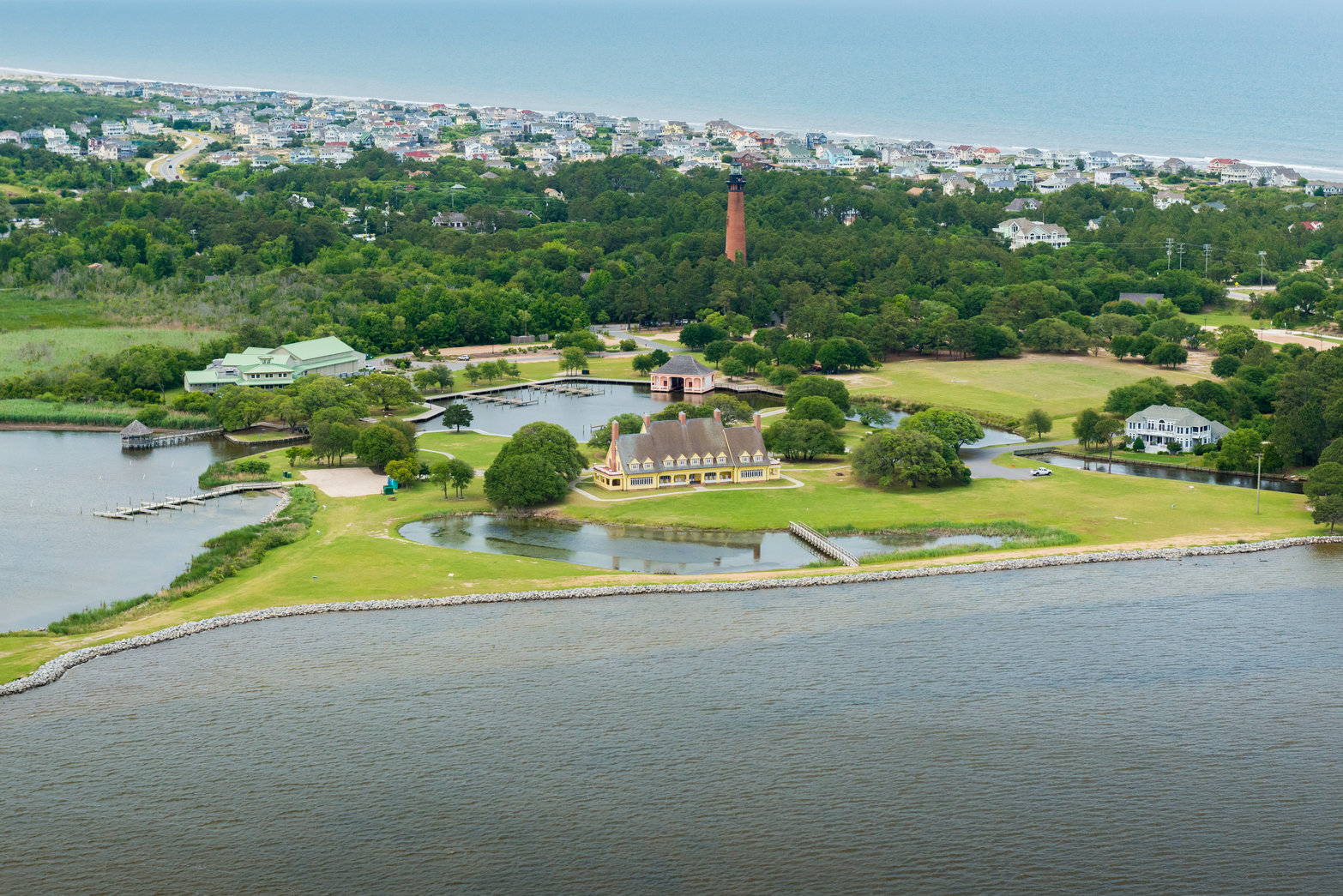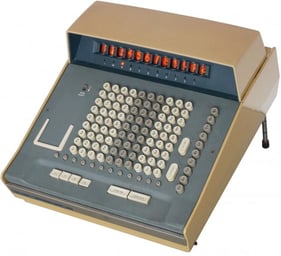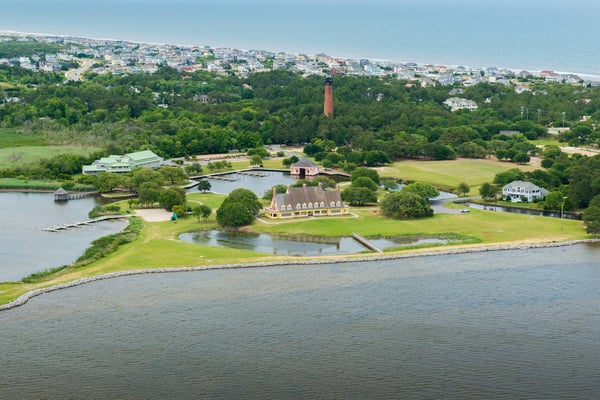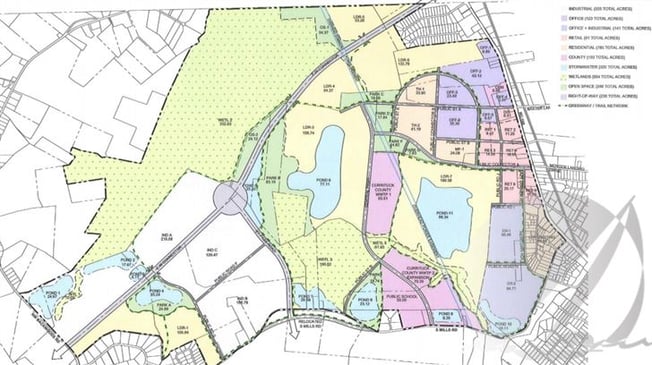
 Currituck County's Economic Development Director Talks About Building a Community of Business Innovation, Planning for Positive Change and Leveraging Local Assets
Currituck County's Economic Development Director Talks About Building a Community of Business Innovation, Planning for Positive Change and Leveraging Local Assets
Larry Lombardi has a split personality.
As Currituck County’s Economic Development Director, he is responsible for a growing list of priorities and projects. His focus is stimulating growth, creating jobs, increasing revenue and constantly improving life for the county’s 25,000 residents.
But when office hours end, Lombardi retreats to “Island Time,” his Corolla home appropriately represented by a sign that features a clock with no hands. He takes a seat on his deck, liberates a cold beverage and soaks in his beautiful view of the Currituck Sound.
“This is my alter ego,” he said. “When I’m here, we don’t do schedules.”
There’s probably a version of the “Larry Lombardi Master Plan” that says he should be retired now. That was certainly part of the strategy when Lombardi and his wife moved to Currituck County in 2005. Somewhere along the way, plans changed.
 You could blame Larry’s aversion for sitting on the sidelines on his famous relative, legendary Green Bay Packers head coach Vince Lombardi. But it’s probably better attributed to Larry’s passion for business. The man likes bringing people together and getting things done.
You could blame Larry’s aversion for sitting on the sidelines on his famous relative, legendary Green Bay Packers head coach Vince Lombardi. But it’s probably better attributed to Larry’s passion for business. The man likes bringing people together and getting things done.
Though you can still hear the Northerner in his voice, Lombardi has been migrating south over the course of his life and careers. From Connecticut he moved to Washington D.C., where he rode a remarkable wave of change in the technology and networking industry. He became an entrepreneur, joining multiple tech startups and launching his own sports management software company. In Norfolk, he helped guide existing companies to expand and grow new companies and contributed to what has become a small business renaissance of sorts for the Hampton Roads city.
 On May 1, 2017, Larry Lombardi became the Economic Director for Currituck County. Recently he sat down to talk about where he came from, how he got here and where he wants to go...
On May 1, 2017, Larry Lombardi became the Economic Director for Currituck County. Recently he sat down to talk about where he came from, how he got here and where he wants to go...
Before working in economic development, you spent a lot of time in the networking and technology industry. Were you always a tech guy?
No, not at all. I didn’t have any of that stuff in my background and I wasn’t an engineer by trade. My B.S. degree was from the University of Maryland in the College of Health, Physical Education and Recreation. Then I worked for the Maryland National Park and Planning Commission in the Washington D.C. area. The way I ended up in technology was through some friends of mine that were in sales.
 Which reminds me of a big lesson I learned about business, jobs and innovation. This was in the late 1970s, and a couple of these guys sold big desktop adding machines that could cost around $500-$800. But when the Japanese starting manufacturing calculators, they miniaturized them. Suddenly nobody was willing to pay $500 for a calculator. Everything on the market was smaller and cheaper. Just like that, the Japanese turned calculators into a commodity.
Which reminds me of a big lesson I learned about business, jobs and innovation. This was in the late 1970s, and a couple of these guys sold big desktop adding machines that could cost around $500-$800. But when the Japanese starting manufacturing calculators, they miniaturized them. Suddenly nobody was willing to pay $500 for a calculator. Everything on the market was smaller and cheaper. Just like that, the Japanese turned calculators into a commodity.
That’s when I learned that innovation is what drives the market. Innovation creates new opportunity. It's really called creative destruction... it’s happened over the last few hundred years and it will continue to happen.
You were definitely working during a time of creative destruction. Networking and computers were changing fast.
I got in at the right time and I was always on the leading edge, sometimes bleeding edge, when it came to network equipment.
One of my clients was the U.S. Department of Justice. I sold to the Antitrust Division of the Justice Department. This was during the breakup of the Bell System and I had kind of a front row seat to what was happening. I knew that there were going to be some big changes—and big opportunities—and that led me into the networking business.
Over the years, I sold 9600 baud modems for $10,000 and the cost of dedicated high speed T1 lines were about $12,000 a month when selling to the federal government and the corporate world. And then came the digital revolution and the rise of the internet.
Why did you leave?
What I was seeing at the end of my career in that industry, was that things were changing. The big guys were buying up the little guys and the innovation in networking equipment just wasn't there as much anymore. Content was more important and network communications was becoming a commodity.
How did you end up in economic development?
I started looking closer at economic development and business development jobs and I thought, ‘I could do this, this is what I've been doing.’ The positions sounded like a great combination of my past experience.
After college I had worked for that parks and planning agency in the Washington D.C., Metro area. During my career in networking and technology I worked with the government and the private sector. And while I started off in sales, later on, my role had evolved into more of a business development capacity. That led me to get involved with a handful of tech startups on the East Coast and in Silicon Valley, so I learned even more about what it took to grow and run a business.
Economic and business development seemed like an easy transition because my skill set transferred very nicely. So I started by looking at Raleigh and Norfolk because they were the two biggest cities closest to me in Corolla.

You landed in Norfolk as a Business Development Manager.
That was a great experience because it exposed me to all kinds of business from retail and industrial development to working closely with start-ups. I was familiar with the start-up culture, because that’s where I came from.
Norfolk was a perfect fit because so much of the city’s new business activity was being driven by technology. To make a start-up successful, especially a technology start-up, you need collaboration and cooperation… you need to bring together universities, researchers and hospitals. You need a business community that embraces innovation.
But working for the City of Norfolk wasn’t exactly like working for a tech start-up.
No, understanding how to get things done in the private sector and how things get done in the public sector are two very different things. The biggest lesson that I learned was how to become a resource for the businesses. Whether it’s the property developer, the capital investor or the business owner… I was there to help them succeed.
Launching a business and keeping it afloat is hard work. That non-stop pace can be brutal.
It burns out a lot of companies. For every ten companies, one’s going to make it and the others are going to fail at some point. That's just the nature of the beast. You can go through a lot of failure before you reach success.
Change is sometimes a hard concept for people to understand. As someone who's always been on the edge of things, change excites me. Change is like time, you're not going to stop it, it's always going to move forward. The question you have to ask is, ‘How are you going to embrace that change?'

How do you embrace change when it comes to economic development?
To start, you need to diversify the economy the same way you would an investment portfolio. Don’t put all your eggs in one basket.
Here in Currituck County, we don't want to have all our revenue depend on tourism and travel. Don’t get me wrong, tourism is a super foundation, but at the same time we've got to be able to spread out our risk. If we run into a bad time in the economy, there have to be other sectors that are running on all cylinders.
When it comes to the county’s economy, we’re aiming for a straight line instead of peaks and valleys. That’s really the goal of an economic development professional… to have multiple baskets, or economic sectors, working together. If you can level out that roller coaster, you can get through the tough times.
What was it like transitioning from Norfolk to Chowan County, where you worked with the Edenton Chowan Partnership?
That was a big change. I knew going to a small rural county like Chowan would be different. In Norfolk everything was redevelopment which is the most expensive way to do economic development. The city is close to 95% built out, so if you wanted to do anything, you had to knock things down and build back up. It’s an urban environment, a city with a downtown core. And most people knew about Norfolk because of the Naval Base and the fact that it has been a port city for hundreds of years. That brand recognition helps.
But in rural counties like Chown, and to some degree, Currituck, that space is a kind of a blank canvas that represents opportunity. But you really have to consider the dynamic of what was there and what you could potentially do there.

It’s more than just looking at acreage and asking “What can we build?”
Right. The thing you have to realize with a rural county is that you just can't become an Austin or Seattle or something like that. You can’t just take something that worked somewhere else and magically transplant it. You have start by taking the assets that you have on the ground, assets that have been there for years… and you need to leverage those assets.
For example, 85% of Chowan County is devoted to agriculture. They were already doing major food processing and shipping private-label peanuts for big companies like Costco and Wal-Mart. They are also a huge grower of clary sage, a plant that is used in perfumes and dryer sheets. It’s incredible because, outside of France, Bertie and Chowan counties are the biggest growers of clary sage. One reason is because of the soil in Chowan, which can grow anything.
So after looking at things like peanuts and clary sage, the question became, how do we leverage that agriculture industry? How do we look forward to create jobs? Because the population in the town of Edenton and Chowan County hasn't really changed over the last 15-20 years. The only way to get that tax base and revenue increased is by bringing jobs. But they have to be the right jobs.
Can farming bring in the right jobs?
Well, you have to have higher paying jobs that are innovative... not commodity jobs. If you rely on commoditized type jobs, companies are just going to go around the world and try to find the cheapest labor that they can. So again, I go back to technology because some of the technology involved with food processing gives us an advantage over the rest of the world.
That’s why, if you have acres of active farmland, it’s not just about figuring out which crop is best to grow or whether you should develop and build on the land, it’s about taking a closer look at how to innovate by leveraging the processes and technology behind the production that is already happening.

What attracted you to the idea of becoming Currituck County’s Economic Development Director?
We’ve been visiting this area since 1986 and I've lived here since 2005. Once I entered the world of economic development, I started paying much more attention to what was going on in the county and the region.
When the position opened up, it felt like a great opportunity to combine the experience that I had accumulated in the technology industry and business development field. I’m familiar and connected to business and government in Hampton Roads and rural North Carolina. It felt like the perfect mix of ‘right place, right time.’
I was also excited by things that were going on in the region and specifically in Currituck County. There’s a lot in motion right now, with the Mega-Site up in Moyock, opportunities around the H2OBX Waterpark in Lower Currituck, and the potential mainland development around the Mid-Currituck Bridge.
Looking at the statistics for the next 20-30 years, Currituck is the only county in this area that is projected to grow. That's a good thing… and the fact that we have a built-in recognition of the Currituck Outer Banks is huge, people pretty much anywhere in this country know, or have heard of, the Outer Banks.
So that was very attractive to me as a professional, this opportunity to get in on the ground level during a very exciting time for this area.
Take a look at some of the major projects shaping up in Currituck County
Do you think the county is prepared for change?
Yes I do. Look, when I moved from Connecticut to Washington D.C., it was still a sleepy southern town, not at all like it is today. I saw the tremendous growth that was happening where I lived in Montgomery County, Maryland. It was a rural place but they were planning for growth. They were doing planning concepts of wedges and corridors back then, and the way development occurred along the main corridor of I-70S (which became 270) is not much different than looking at the corridor of 168 to 158.
I lived there and I saw the massive changes, but they were good changes. You look at the schools, you look at the income of the people and the choices they have now. It’s hard to believe that it used to be farmland and people thought it was the sticks. They don’t think that anymore.

The same kind of development has happened in southern Virginia Beach, Chesapeake and Suffolk. If it continues to move south, do you see Currituck County as a sort of new frontier?
I definitely see it as a new frontier. It’s also a gateway. Look where it's located and look at where the majority of people in the United States live and it's on the East Coast, from Virginia up to Boston and over to Ohio and Pennsylvania. When those people travel south, they are coming through North Carolina and the first county they are hitting is Currituck County.
From a planning and economic development perspective, it’s also important to do our due diligence to make sure that the things we plan to bring to the county are going have a positive impact 20 or 30 years from now. It's a challenge, because no one knows what's going to happen. But you have to plan.
Do you get the sense that your colleagues in the county are all on board when it comes to future plans?
Yes, and that's always a good thing. We're all on the same page and things are gonna happen here. That's what I like, as opposed to talking about it, killing it with committees or studies or advisory boards. If we have the information and it makes sense, let's make a decision as opposed to just mulling things over. Because mulling things over is not the best use of taxpayer's money.
It's better when you're working as a team. And I think we’re in great shape here because of the involvement of the citizens, combined with the commitment of the county government, the Board of Commissioners, the planning department, economic development and tourism. We’re all working together.
These Stories on Economic Development
No Comments Yet
Let us know what you think